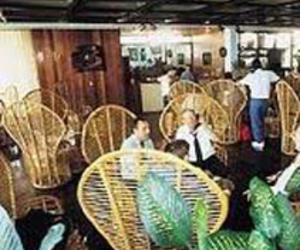Bomb victim's friend testifies on militant's trial
- Submitted by: manso
- Editorial Articles
- 03 / 09 / 2011

AP.Tue Mar 8, EL PASO, Texas – The friend of the Italian tourist killed in the 1997 bombing of the Copacabana Hotel in Havana, Cuba, gave a harrowing account of the explosion and the death of his friend during the U.S. trial of a former CIA operative accused of immigration fraud, perjury and the obstruction of justice in a terror investigation.
With the help of an interpreter, Enrico Gollo, 45, told the jury Monday how he and his then wife were having a drink in the lobby bar of the Copacabana with his friend Fabio di Celmo when the bomb went off.
Cuba-born Luis Posada Carriles, 83, is accused of lying to immigration officials during citizenship hearings in El Paso about how he sneaked into the U.S. in March 2005, and of failing to acknowledge planning the bombings of Cuban hotels and a top Havana tourist restaurant in 1997. Tuesday's testimony is also expected to focus on the Havana bombings.
Gollo recounted in detail the moments that followed the blast.
"The first thing I can remember was a big noise, I didn't immediately understand what was happening. My ears were ringing, there was lots of smoke," said Gollo recalling the Sept. 4, 1997, attack. A bomb, placed inside a metal ashtray in the lobby bar sent shrapnel flying through the air, slicing di Celmo's jugular.
"He was all covered in blood, near him a big lake of blood, there was a lot of blood coming out of him," Gollo added.
Di Celmo was then taken in a private car to a nearby clinic where he was pronounced dead upon arriving, Gollo said. Twelve other people, including Gollo's wife, were injured that day.
Both Italians met as teenagers in the town of Pegli, Genoa — where Gollo is from_ and had a 17-year-long friendship that ended with di Celmos's death.
Posada told The New York Times in 1998 that he was behind the bombings, which he said were meant to cripple the Cuban tourism industry. He has since recanted those comments.
The Cuban militant spent decades traversing Latin America, often backed by Washington, working to destabilize communist governments. He is Public Enemy No. 1 in Cuba, considered ex-President Fidel Castro's personal nemesis, and his attorneys say the Cuban government is bent on seeing Posada dead or incarcerated.
A paid CIA agent for at least 12 years in the 1960s and 70s, Posada participated indirectly in the United States' failed Bay of Pigs invasion of Cuba in 1961 and later moved to Venezuela, where he served as head of that country's intelligence service.
He was arrested for planning the 1976 bombing of a Cuban airliner that killed 73 people. A Venezuelan military court dismissed the charges, but Posada escaped from prison before a civilian trial against him was completed.
In the 1980s, he helped Washington provide aid to the Contra rebels in Nicaragua. In 2000, he was arrested in Panama in a plot to kill Castro during a summit there. He was pardoned in 2004 and turned up in the U.S. the following March.
Posada was held in an immigration detention center in El Paso for about two years but released in 2007 and has been living in Miami.
By JUAN CARLOS LLORCA Juan Carlos Llorca
Source: http://news.yahoo.com/s/ap/20110308/ap_on_re_us/
Comments